Oualid Zari
Node Injection Link Stealing Attack
Jul 25, 2023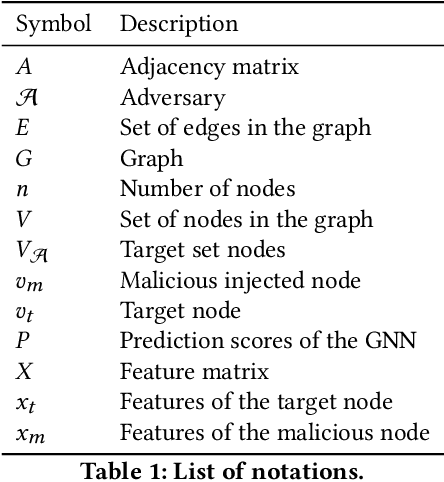
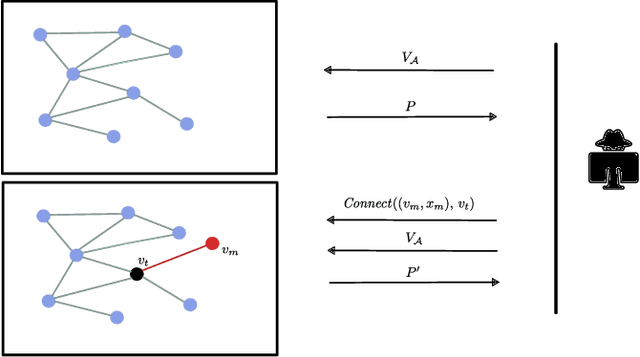
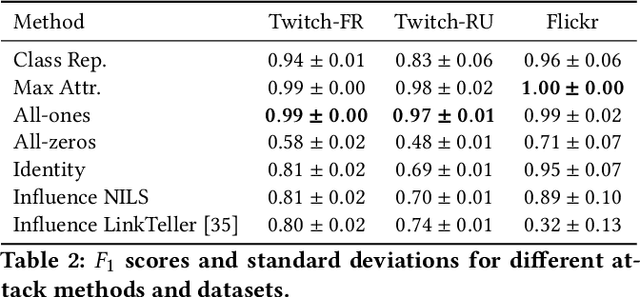
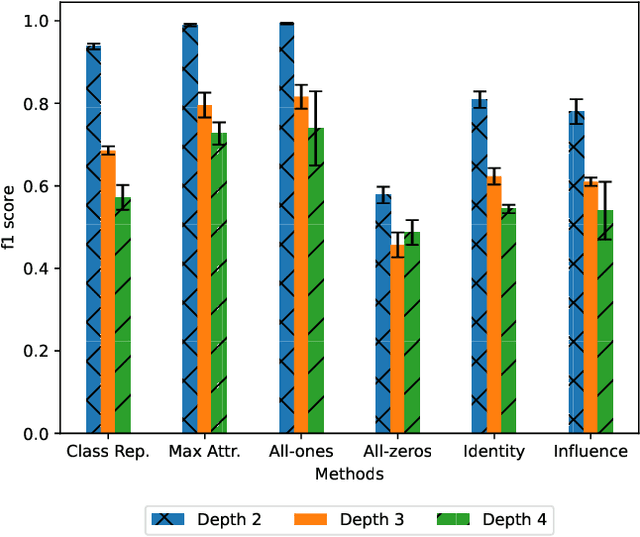
Abstract:In this paper, we present a stealthy and effective attack that exposes privacy vulnerabilities in Graph Neural Networks (GNNs) by inferring private links within graph-structured data. Focusing on the inductive setting where new nodes join the graph and an API is used to query predictions, we investigate the potential leakage of private edge information. We also propose methods to preserve privacy while maintaining model utility. Our attack demonstrates superior performance in inferring the links compared to the state of the art. Furthermore, we examine the application of differential privacy (DP) mechanisms to mitigate the impact of our proposed attack, we analyze the trade-off between privacy preservation and model utility. Our work highlights the privacy vulnerabilities inherent in GNNs, underscoring the importance of developing robust privacy-preserving mechanisms for their application.
Differentially Private Adversarial Auto-Encoder to Protect Gender in Voice Biometrics
Jul 05, 2023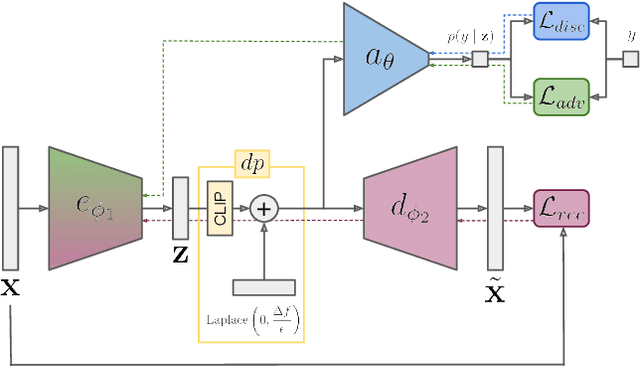
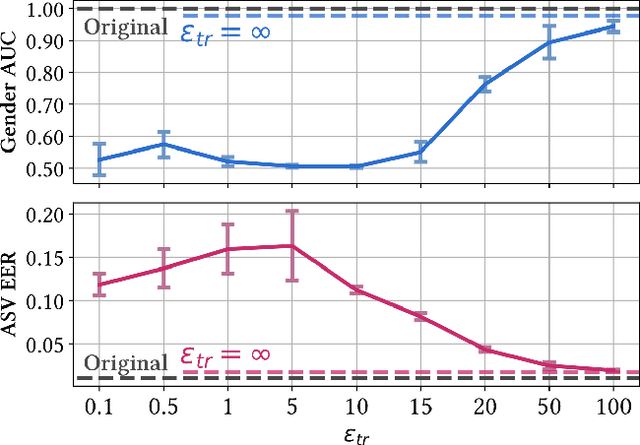
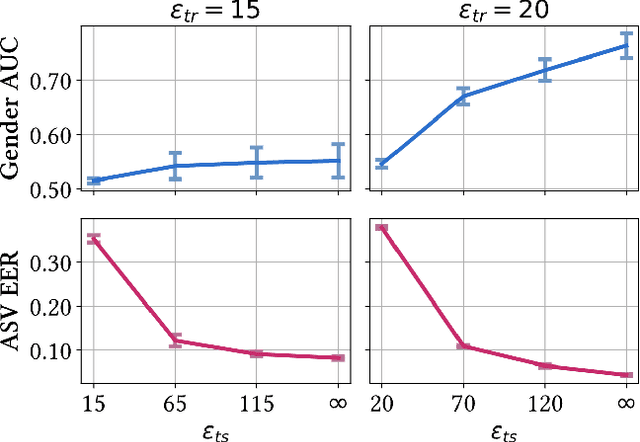
Abstract:Over the last decade, the use of Automatic Speaker Verification (ASV) systems has become increasingly widespread in response to the growing need for secure and efficient identity verification methods. The voice data encompasses a wealth of personal information, which includes but is not limited to gender, age, health condition, stress levels, and geographical and socio-cultural origins. These attributes, known as soft biometrics, are private and the user may wish to keep them confidential. However, with the advancement of machine learning algorithms, soft biometrics can be inferred automatically, creating the potential for unauthorized use. As such, it is crucial to ensure the protection of these personal data that are inherent within the voice while retaining the utility of identity recognition. In this paper, we present an adversarial Auto-Encoder--based approach to hide gender-related information in speaker embeddings, while preserving their effectiveness for speaker verification. We use an adversarial procedure against a gender classifier and incorporate a layer based on the Laplace mechanism into the Auto-Encoder architecture. This layer adds Laplace noise for more robust gender concealment and ensures differential privacy guarantees during inference for the output speaker embeddings. Experiments conducted on the VoxCeleb dataset demonstrate that speaker verification tasks can be effectively carried out while concealing speaker gender and ensuring differential privacy guarantees; moreover, the intensity of the Laplace noise can be tuned to select the desired trade-off between privacy and utility.
Efficient passive membership inference attack in federated learning
Oct 31, 2021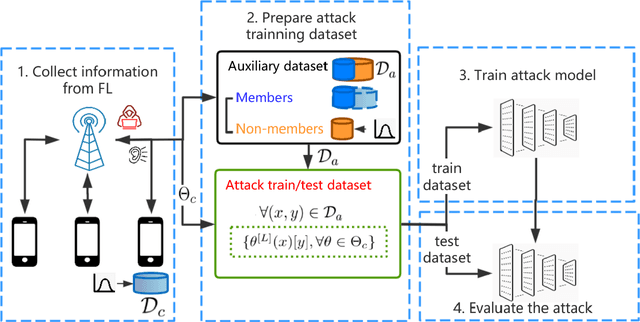


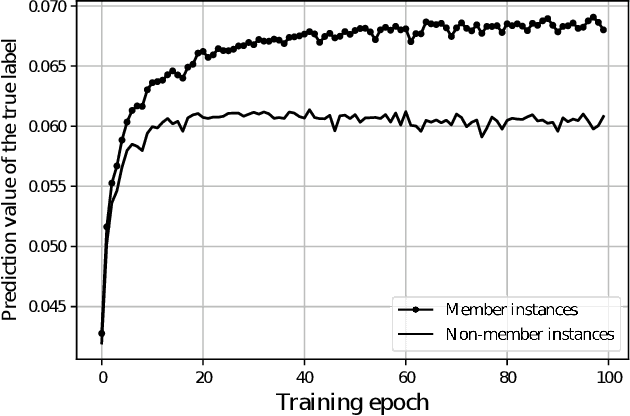
Abstract:In cross-device federated learning (FL) setting, clients such as mobiles cooperate with the server to train a global machine learning model, while maintaining their data locally. However, recent work shows that client's private information can still be disclosed to an adversary who just eavesdrops the messages exchanged between the client and the server. For example, the adversary can infer whether the client owns a specific data instance, which is called a passive membership inference attack. In this paper, we propose a new passive inference attack that requires much less computation power and memory than existing methods. Our empirical results show that our attack achieves a higher accuracy on CIFAR100 dataset (more than $4$ percentage points) with three orders of magnitude less memory space and five orders of magnitude less calculations.
 Add to Chrome
Add to Chrome Add to Firefox
Add to Firefox Add to Edge
Add to Edge